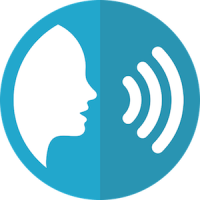Amazon has amped up the capability of its voice assistant, Alexa, which now boasts about half a dozen new medical skills. For instance, a user can request help by asking this question “Alexa, find me a doctor” and obtain a prompt response from the voice assistant.
The upgrade has become possible since Alexa is now HIPAA compliant, meaning Amazon can work with health developers who adhere to certain guidelines to ensure sensitive health information is protected. HIPAA, or the U.S. Health Insurance Portability and Accountability Act, is designed to uphold protection of patient data in cases where such information is shared with hospitals or other healthcare organisations.
Voice technology is increasingly becoming an important tool in healthcare, especially for kids, seniors and those with mobility problems. Amazon Alexa’s health and wellness team, which includes Missy Krasner (who previously ran Box’s healthcare efforts) and Rachel Jiang (who used to work for Microsoft and Facebook), said it collaborated with partners on the six new health skills, which help consumers make doctor’s appointments and check their health status. “These new skills are designed to help customers manage a variety of healthcare needs at home simply using voice – whether it’s booking a medical appointment, accessing hospital post-discharge instructions, checking on the status of a prescription delivery, and more,” Jiang explained.
The upgraded Alexa represents an important step for Amazon as it moves into the $3.5 trillion healthcare sector. The company partnered with Boston Children’s Hospital, for example, to develop a new HIPAA-compliant skill called “ERAS” for kids and their families that are discharged from the hospital. Through Alexa’s voice assistant, patients and caregivers can ask specific questions about their case from the care team, and doctors can remotely check in on the child’s recovery process.
Alexa also boasts a skill designed for people with diabetes that use connected glucometers to ask about their blood sugar levels. A user might say something like, “Alexa, pull up my blood glucose readings” to get a quick response. To develop this particular skill, Amazon turned to Livongo, a digital health start-up that works with employers to help them manage workers with chronic medical conditions.
Livongo’s president Jenny Schneider cites important reasons why some people prefer using voice technologies to SMS messaging or other platforms: “Some of those people might have difficulty reading, or they just have busy lives and it’s just an easy option,” she said. The company estimates that about 20,000 of its customers already have an Alexa device in their home.
Other partners building Alexa health skills include Express Scripts, a pharmacy benefits manager, and Cigna, a health insurer that merged with Express Scripts last year. Express Scripts is devising a way for members to check the status of their home delivery prescription, while Cigna described their skill as helping their members “manage health improvement goals.”
For its part, Providence St. Joseph Health, a Seattle health system, developed Alexa's skill for people to find an urgent care centre or schedule an appointment. A similar skill is from Atrium Health, a health system across North Carolina, South Carolina and Georgia.
Latest Articles
HIPAA, Cigna, Amazon, voice assistant
Amazon has amped up the capability of its voice assistant, Alexa, which now boasts about half a dozen new medical skills. For instance, a user can reques...

























